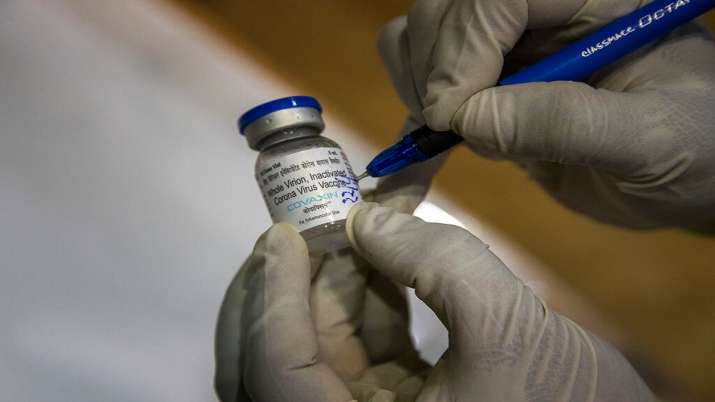
Decision on Covaxin emergency use list likely in 4-6 weeks: WHO
The World Health Organization (WHO) is likely to take a decision on India’s only indigenously developed COVID vaccine – Covaxin – within four to six weeks (by the first week of August), upon inclusion in the Emergency Use List (EUL), Soumya Swaminathan. WHO Chief Scientist has said.
Speaking at a webinar organized by the Center for Science and Environment (CSE) on Friday, Soumya Swaminathan said WHO is reviewing Covaxin as its manufacturer Bharat Biotech is now uploading its complete data on the health body’s portal.
According to WHO guidelines, EUL is a process to streamline the process by which new or unlicensed products can be used during public health emergencies.
Swaminathan said, “EUL and pre-qualification of vaccines has to follow a process whereby a company has to complete Phase 3 trials and submit complete data to WHO’s regulatory department, whose The investigation is carried out by an expert advisory group.”
“The completeness of the data, including safety and efficacy and manufacturing quality, is also provided standard. Therefore, I expect Bharat Biotech to have already submitted the data and a decision on its inclusion is taken in four to six weeks. Will go,” Swaminathan said.
Currently, WHO has approved vaccines for emergency use by Pfizer/BioNTech, AstraZeneca-SK Bio/Serum Institute of India, AstraZeneca EU, Janssen, Moderna and Sinopharm.
Read also | Bharat Biotech concludes Phase 3 Covaxin trial, claims 77.8% efficacy against COVID 19
“We currently have six vaccines approved with EUL and recommendations from our Strategic Advisory Group of Experts (SAGE). We continue to look at Covaxin. Bharat Biotech has now started uploading its data on our portal and This is the next vaccine that will be reviewed by our expert committee.
He also referred to the WHO Research and Development Blueprint prepared in 2016, shortly after the Ebola outbreak, to lay out a research roadmap for diseases with potential for epidemics.
“I want to mention the research and development (R&D) blueprint. I think we need to think about how we can do better in the future in terms of not only vaccines but also medicines, diagnostics and ensuring equitable access. This blueprint was developed after the Ebola outbreak and essentially created a research roadmap for diseases that have pandemic potential,” she said.
“Therefore, when the roadmap was developed in 2016, it mentioned ‘pathogen X’, which showed that we were anticipating a pandemic, which is now COVID-19,” she said.
Swaminathan also said that the roadmap essentially lays out steps in terms of developing target product profiles – such as standards for vaccines, diagnostics regulatory standards, test designs and test simulators.
“This pre-thinking helped because WHO was able to bring together scientists, researchers, academia and companies to develop a research roadmap for COVID early last year,” she said.
Currently, there are 105 candidate vaccines in clinical evaluation, of which 27 are in phase three or four, he said.
There are another 184 candidate vaccines in preclinical evaluation. He said most vaccines are designed for a two-dose schedule.
The WHO chief scientist also said that the delta version of the coronavirus is highly transmissible.
“Protecting against the delta variant requires two full doses but you can still get the infection and transmit it. That is why it is important to continue masking and other precautions,” she said.
Talking about some companies stressing the need to develop booster doses after dosing two vaccine shots to protect people, Swaminathan said, there is no data at this point to indicate that a booster dose is needed. required or not.
“The science is evolving. At this point we don’t have the data to indicate whether everyone will need a booster and whether it’s going to happen after a year or two. But the data from follow-up studies of people who have been vaccinated are very encouraging. And it’s showing that the immune response is lasting for 8, 10 or 12 months,” she said.
“Some studies looking at a booster dose after six months have shown that it can increase antibody levels high enough to protect against all types. What we do know is that you need a high level of antibodies, whether through a booster or a first course. We need more study and see which vaccines will need boosters and when. It may be possible in the future to give a combination of two different vaccines, but all of these are being researched and so we will have to wait,” she said.
(with PTI inputs)
Read also | India tells EU countries: Coveshield, accept Covaxin or face mandatory quarantine
.